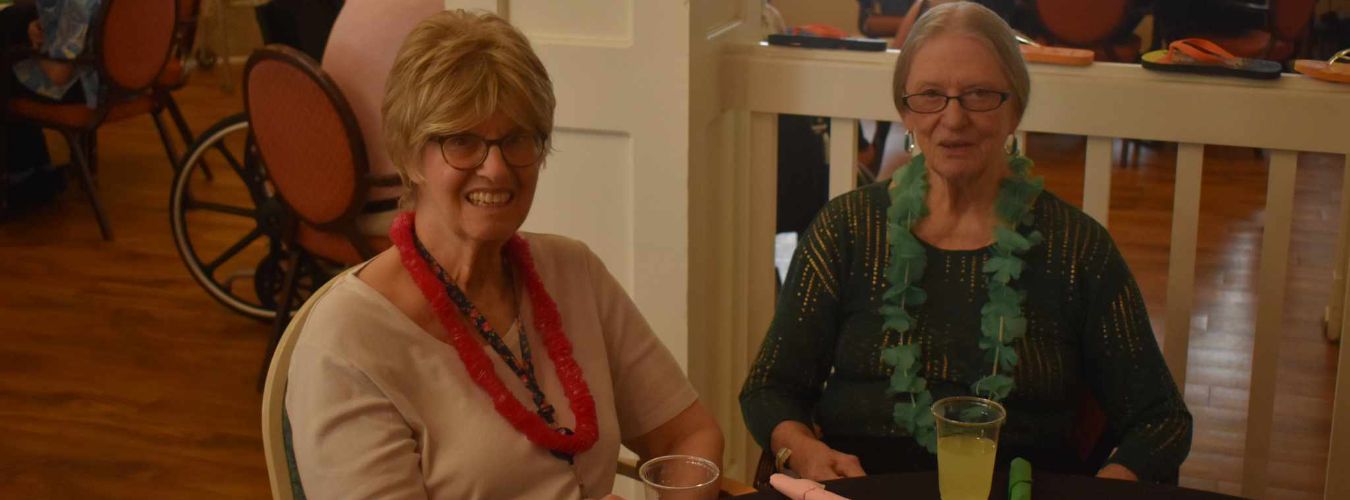
Posted: December 21, 2023
Written By: Chris Pogar | Former Executive Director of Cappella of Pueblo West
Empowering older adults in senior living is paramount for fostering a sense of autonomy, purpose, and well-being. Recognizing and respecting the individuality of each resident is fundamental to this empowerment. Empowering older adults in senior living goes beyond meeting their basic needs; it involves creating an environment that honors their wisdom, values, and aspirations, ultimately enriching their overall quality of life and ensuring a fulfilling and dignified aging experience.
Healthcare at its essence is meant to provide health-related services for those who need it, but in senior living, we do so much more than that. We provide an environment where older adults are empowered to live with purpose. A core value of this community is to not just survive but thrive! Empowering older adults to make their own decisions takes some of the codependency out of the senior living lifestyle and helps put residents back in control of the things they wish to control. Regarding the topic of empowering older adults, Ping Kwong-Kam writes, “It is effective in strengthening elderly people’s contact with the community, eliminating elderly people’s negative self-image, protecting elderly rights, and increasing their capacity to influence policy-making.” (Kwong-Kam, 1996.)
If you look back on memories of being a child and having your parents make most of your decisions for you; what you eat, when to go to bed, what the routine was for the day, you may get the memory of feeling controlled. While these directives may have been in your best interest, there was still a feeling of helplessness. As you reach adulthood, you find a greater sense of empowerment, ownership of your life, and pride in how you do things. This feeling doesn’t change as you continue to age. Put yourself in the shoes of an older adult who has made their own decisions for decades and now are not allowed that privilege. How would that feel?
One thing that I’ve found that makes the move to a community smoother is to include the potential resident in the decision-making process. When the resident feels caught off guard by the move from their long-time home into what they perceive as a “facility,” they may be uncomfortable at best, or fearful at worst.
Most communities in the senior living industry are doing great things to help make their place feel more like home, but that can only go so far if we don’t help residents make it their home. Many things are being done now that help make this transition from new home to “my home” smoother. Resident councils are one means by which residents can actively engage in decision-making and community building; these could be opportunities to provide feedback on aspects of daily living, such as the food being served and activities being offered, or to share one’s individual talents or preferences with the community. These resident councils, or resident-led activities, help with empowering older adults to pursue their passions and live with purpose.
In an ageist society, there is a pervasive belief that we must “care for our elders.” This way of thinking tells older adults that they need someone there for them in order to feel safe—stripping away some of their personal freedom and control.
The late Doris Roberts, the Emmy-award winning actress who was in her seventies during the T.V. show “Everybody Loves Raymond,” testified at a Senate hearing for the Special Committee on Aging, stating, “My peers and I are portrayed as dependent, helpless, unproductive, and demanding rather than deserving. In reality, the majority of seniors are self-sufficient, middle-class consumers with more assets than most young people, and the time and talent to offer society.” (American Psychological Association. 2003.)
Doris’s sentiment echoes what we try to convey to the residents at Cappella of Pueblo West every day through our interactions and by offering options and choice. Residents have the autonomy to make their own decisions and determine what is best for them and their community. As more senior living communities move beyond solely providing health-related services and shift to a philosophy that supports empowering older adults, perhaps our perspective on aging will be embraced as a time for continued personal growth and purposeful living.
Chris Pogar Former Executive Director at Cappella of Pueblo West, a senior living community serving older adults and their families in southern Colorado.